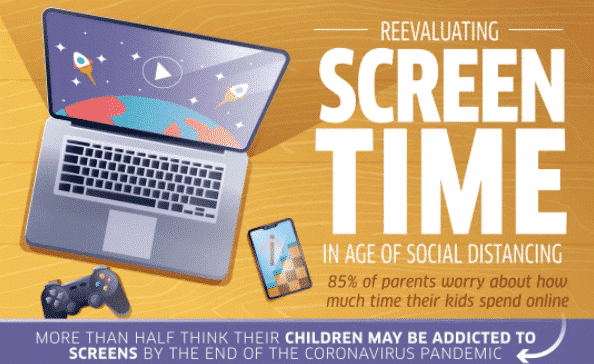We’ve heard it for decades now—too much screen time will rot your brain. Before the television, this served as a warning not to sit in front of a screen passively watching images projected on a glass screen.
But as computers, smartphones, and tablets came onto the scene, the way we interact with screens has changed significantly.
Is screen time still bad in an age when we use it for everything from interpersonal communication to school?
Studies Show Too Much Screen Time Correlates With Developmental Delays
Parents have long been warned against allowing kids, especially young ones, to have too much screen access.
There is good reason for this, but it’s not as straightforward as you might think.
Children under two who regularly watch one hour of television per day show higher rates of cognitive, motor, and language delays, while children between the ages of two and six who use screens frequently show higher rates of emotional problems and family dysfunction.
However, these studies show a correlation based on observable information, which may not paint a complete picture. The type of screen time matters, as do other factors in a child’s life.
Does family dysfunction come from too much screen time, or does too much screen time cause family dysfunction? Does it make more sense that a dysfunctional family would rely on too much screen time or that a child watching too much television would cause his family to become dysfunctional?
Screen Time Is More Nuanced Than Just On Or Off
Is watching Looney Toons the same as watching Sesame Street? Probably not. But television isn’t the only type of screen time kids are using.
Kids are also using screens for games, and the harmfulness of that even changes with the type of game.
Smartphone app-based games are often designed to be addictive while offering little cognitive benefit.
Conversely, creative games like Minecraft teach kids about problem-solving and are an active way for them to participate in screen time.
Active versus passive screen time matters, as does what is being done. Using screens to communicate with family and friends, especially right now, is a great use of screens and probably shouldn’t be limited, especially for screen addiction concerns.
Quality of Screen Time Matters
Right now, parents are going to work on screens, and kids are going to school on screens.
Does this mean we will all be addicted to screens when the pandemic is over? Some people might be, but that is not the biggest concern at the moment.
Right now, the biggest concern is ensuring people have access to each other, that kids can go to school, and that parents can work safely.
This is much better for our mental health than trying to cut ourselves off from the world both physically and digitally.
Pay attention to the kind of screen time your family is getting and try to balance it between necessary, social, and recreational.
Add in some family game nights and watch movies together as a family instead of everyone watching their own screens separately.
Learn more about why we should reevaluate screen time from the infographic below.









